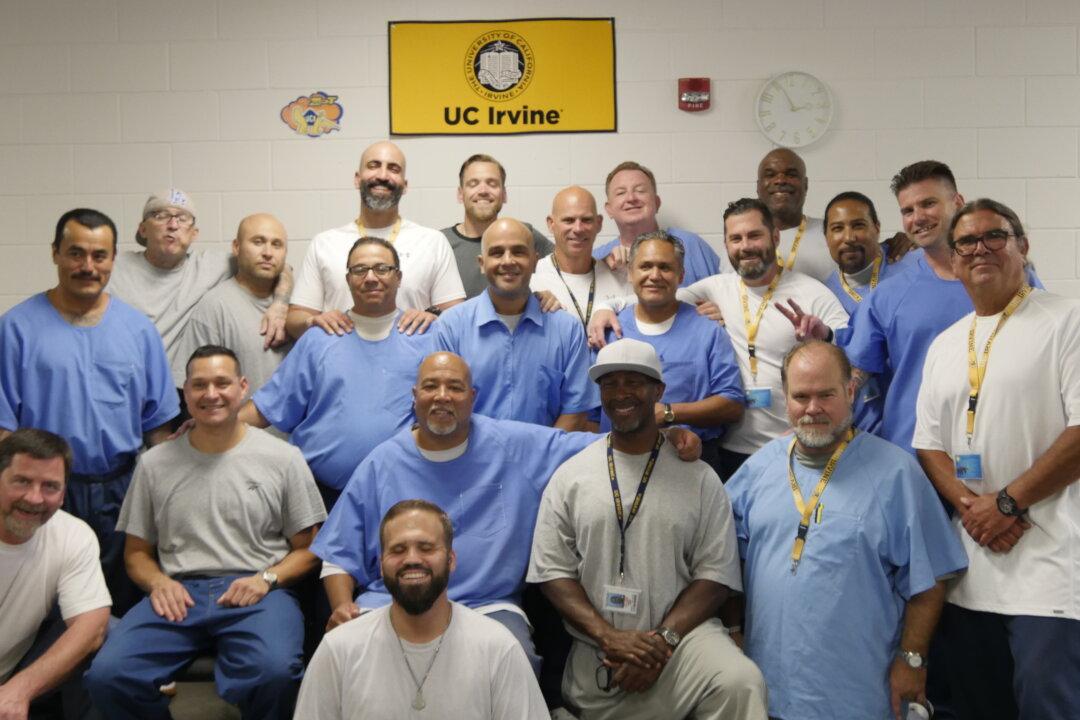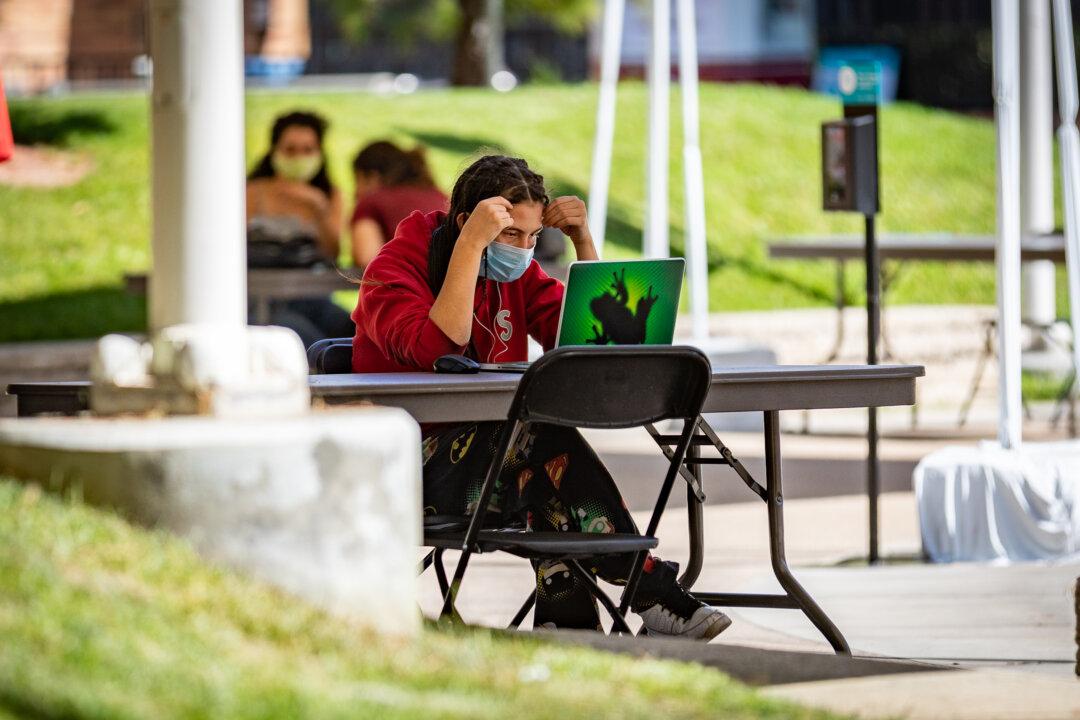Twenty-three incarcerated students in the state prison system graduated this month with bachelor’s degrees, marking the first time that inmates have earned a four-year education from the University of California (UC).
The inaugural class received their education through UC–Irvine while serving sentences at the Richard J. Donovan Correctional Facility in San Diego.





